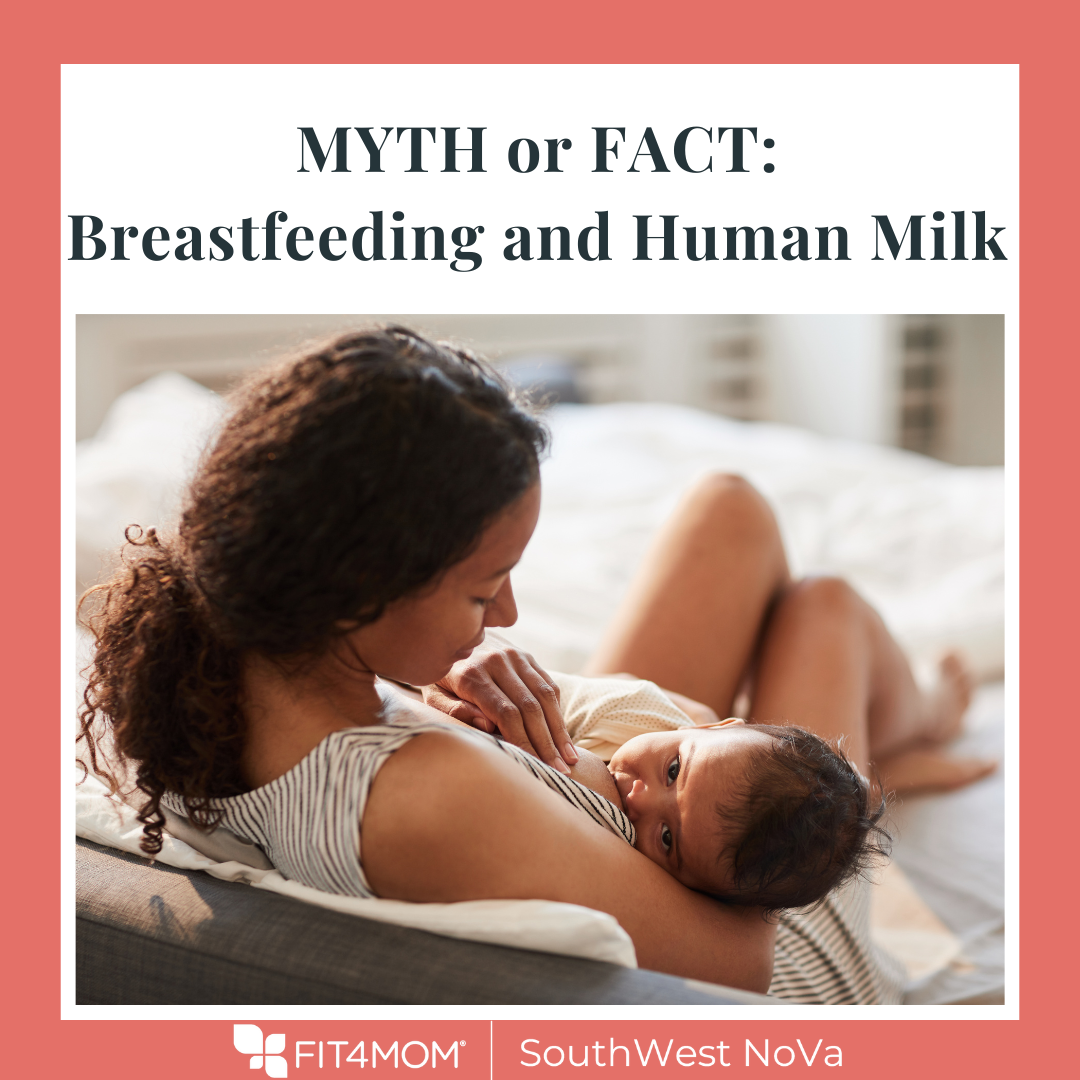
Myth or Fact: Breastfeeding and Human Milk
Kylie Powell, La Leche League Peer Counselor
For parents who wish to provide human milk to their babies, strong support and evidence based information is key. Through La Leche League, families can find resources, encouragement, and support from peers and trained volunteer peer counselors. LLL provides free support to all families wishing to provide breast milk to their babies in any capacity. We see you as the expert on your child, your family, and your feeding journey.
There is a lot of information about breastfeeding out there! Mothers may get suggestions about feeding from their health care team, family members, friends, and various online platforms. Many parents feel overwhelmed with which guidance to follow. Below, we address some common myths about breastfeeding and breast milk and hope you’ll feel empowered with these evidence based truths.
Myth: Breast milk comes in within a week of delivery.
Truth: Your baby’s first breast milk, colostrum, is made during pregnancy! This milk is made without any preparation on your part - your body takes care of all of that. When we refer to milk “coming in”, that usually refers to a larger volume of milk called mature milk. Colostrum is exactly what your newborn needs in perfect volumes for their tiny tummies. Newborns need to nurse 10-12 times a day to bring in the mature milk. Mature milk comes in with frequent milk removal by either pumping, nursing, or hand expressing. You can learn more about colostrum here.
Myth: Most mothers do not make enough milk.
Truth: Almost all breasts and bodies can make enough nutritious milk! Milk supply is driven by a supply and demand system. Nursing frequently helps keep your baby full. Some mothers with smaller breasts may notice their storage capacity is smaller and they need to nurse more often, while mothers with larger breasts may have a larger storage capacity. More milk is always being made, as long as milk is being removed! If you are unsure if your baby is getting enough milk, reach out for support. Weight gain, adequate dirty and wet diapers, and the disposition of your baby can be helpful indicators that your baby is doing well. You can learn more about milk supply and how to know if your baby is getting enough here.
Myth: Breast milk only has benefits in large volumes.
Truth: Every drop of breast milk benefits your baby! Breastfeeding does not have to be exclusive to have significant benefits to both mother and baby. For babies, the immune benefits, bonding and emotional benefits, and decreased risks of further health issues continue as long as breastmilk is provided. For mothers, breastfeeding in any capacity can lower the risk of breast and ovarian cancer and other health concerns. To learn more about the benefits of breastfeeding, keep reading here.
Myth: Babies commonly self wean abruptly before age one.
Truth: If your baby is refusing to nurse, consider if they may be on a temporary nursing strike instead of weaning. Many parents become anxious that their baby may be suddenly weaning around nine, ten, eleven months of age. Weaning is a gradual process. Nursing strikes may come on more suddenly and can be attributed to many things. Illness in your baby, changes in the home, teething, or even a change in your deodorant can begin a nursing strike. To learn about the differences between nursing strikes and weaning, plus solutions to get nursing going again, keep reading here.
Myth: Breast milk loses its nutritional value at age one.
Truth: Breast milk still has nutritional value and benefits for toddlers! Many toddlers continue to breastfeed beyond age one and still receive significant benefits. Many major health organizations recognize the benefits of continued breastfeeding and recommend families who can continue to do so until age two and beyond (AAP statement, WHO statement). Many toddlers nurse less frequently as they age and eat more foods, which can help manage the demands of nursing. Learn more about toddler nursing and nutritional, immune, and social/emotional benefits here.
Whatever age or stage you’re experiencing, from prenatal to weaning and everything in between, La Leche League would be honored to support you in reaching your goals. You can find La Leche League of Springfield VA and Neighbors meetings, support group, and contact info for one on one support here. We meet in person (Springfield and Alexandria) and on Zoom.
All of LLL’s services are 100% free. Reach out anytime via text or phone at: 720-722-0790.
We’re here for you!
